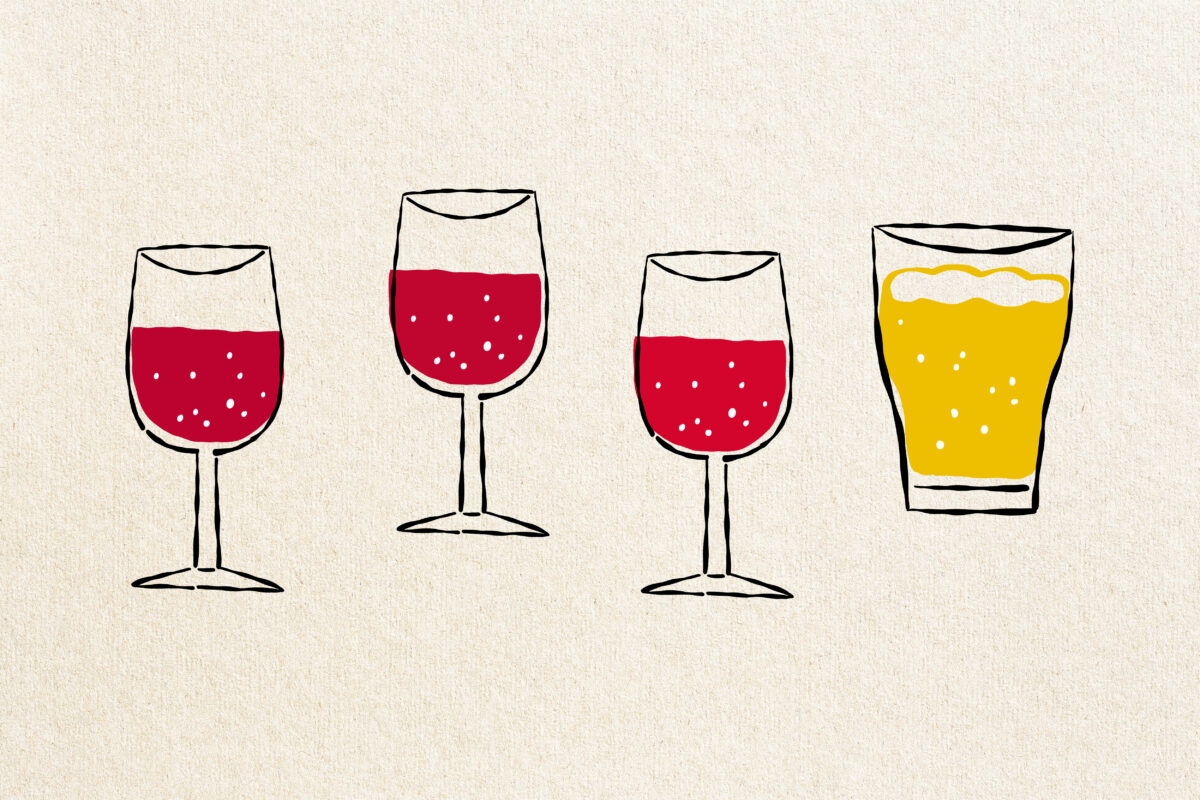When we started dating, my husband — who was my non-Jewish boyfriend at the time — embraced every Jewish ritual I introduced. He held the kiddush cup and quietly repeated the blessing after me. He fasted out of solidarity on Yom Kippur and stood over the stove frying latkes during Hanukkah until canola oil dripped from his eyebrows. When Passover rolled around, he proudly announced that he would give up bread.
“Are you sure?” I asked nervously. He hails from a small Bavarian town, and although he’s generally put off by German cuisine (which he calls “brown meat in brown sauce”), he has a weakness for German bread. A hearty, seed-studded, whole-wheat loaf is, for him, the sine qua non of sustenance. I once witnessed him eat nothing but bread and cheese for an entire week. Bagels won’t cut it. Even challah is dubiously fluffy. Real bread, according to him, should be dark and dense enough to serve as a viable weapon against an intruder.
There was no way he was going to take matzah quietly.
“It’s actually not bad,” he said while munching on his first piece, taking for granted the thick schmear of Nutella. “It’s just Knäckebrot.” I was getting used to the way he translates Ashkenazi holiday foods into their German equivalents: latkes are Kartoffelpuffer; matzah balls are Grießklößchen and sufganiyot are Krapfen (yes, you’re saying it right). Matzah was hardly uncharted territory for him.
What he didn’t account for was the cumulative effect. Eating matzah over several consecutive days ostensibly reminds us of freedom from bondage but is in fact a crime against the human digestive tract. “Eight days of this?!” he asked, clutching a cloudy glass of prune juice. (The kvetching only made him sound more Jewish.)
“You know, it’s not just bread,” I told him, preparing to drop the bomb. As I listed all the grain-based food and drink that we’re expected to forego during Passover, his face twisted into a grimace. Bread of affliction is one thing, but this was an infringement on the most sacred German rite. “I am not giving up beer,” he said flatly. I wasn’t going to argue with that.
We spent the following Passover in Tel Aviv, where I was pursuing a postdoctoral fellowship. Israel exposed my German boyfriend to a wide spectrum of Jewish practice ranging from strict observance to casual defiance. We were invited to Shabbat dinners where no candles were lit and to others where candles were lit and shrimp was served. We had cheesecake on Shavuot and rode bikes down empty streets on Yom Kippur. We bought matzah during Passover, bypassing aisles of forbidden foods draped in white nylon, then strolled to the nearest bakery for fresh croissants. Judaism seemed to be everywhere and nowhere. When I asked my Bavarian beau how he felt being surrounded by Jews, he looked at me, bemused, and said, “I hadn’t noticed.”
Our year in Tel Aviv was formative for him and for us as a couple. It reminded us that you can both embrace tradition and flout it, and that flouting is a tradition in its own right.
Soon after we got married, in a small “kosher-style” Canadian affair complete with a chuppah and Justice of the Peace, we became parents to a blonde, blue-eyed Jewish boy. Although it was clear that we would raise him Jewish, we had to figure out what that meant. If we were in this together, I couldn’t simply foist my Judaism onto my husband.
When he decided to embark upon a Reform conversion, it was out of curiosity about the process rather than a commitment to the outcome. He started studying without any obligation to take the final plunge, both figurative and literal (a mikvah was involved, after all). What ultimately convinced him was something his teacher said: “You have to convert to become Jewish, but it’s up to you how to be Jewish.”
The politically correct term for a convert is “Jew by choice.” My husband prefers “Jew by experiment.” He hasn’t signed onto a set mode of practice; every day, he dips his toe in, testing the waters, rather than blindly diving in. I find myself doing the same.
With our seder quickly approaching, we have researched tzimmes recipes, pre-ordered the brisket, and invited our guests. Our 5-year-old is practicing the Four Questions and reminds us daily of the Iron Man figurine that he “really, really, really” hopes we’ll give him in exchange for finding the afikoman. My husband isn’t convinced there’s pedagogical value in teaching toddlers bargaining tactics, but he appreciates the enthusiasm.
Our goal this Passover is to redefine tradition, even if it involves a little subversion. During the seder, we will happily imbibe the requisite four cups of wine (neither of us has ever questioned that tradition). But the next evening, we’ll split a bottle of chilled German Hefeweizen, which literally means “yeast wheat” — how’s that for chutzpah?
Beer and matzah: Are we sending our kids mixed messages? Maybe. But it’s the challenging and redefining we want them to embrace. I know they will have many more than four questions about how we do Passover, and about how we do Judaism. We won’t always have an answer prepared. But any parent knows that the endless stream of “why?” is what keeps us honest. It’s an invitation to ponder, reconsider and invent anew. We can toast l’chaim — and prost! — to that.








